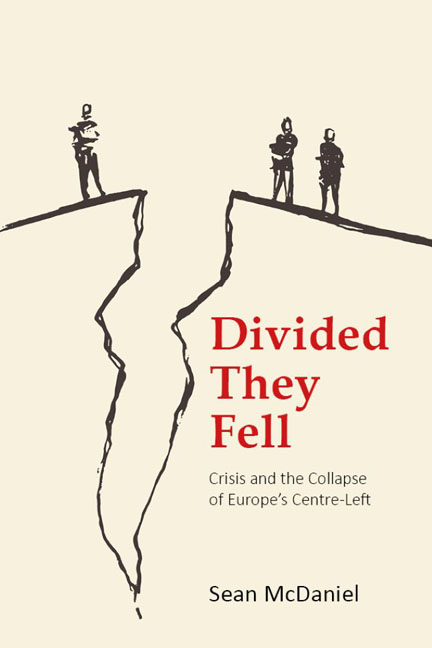Book contents
- Frontmatter
- Contents
- List of abbreviations
- Acknowledgements
- Introduction
- 1 Neoliberal convergence and the politics of austerity: is there still space for the centre-left?
- 2 Struggling to win: centre-left electoral decline and the strategic dilemma of the Third Way
- 3 Developing a strategy: the internal dynamics of the centre-left’s response to the crisis of neoliberalism
- 4 Delivering the strategy: how the centre-left sought to communicate a response to the crisis of neoliberalism
- 5 Stagnation, failure and fragmentation: the rise of the radical left
- 6 Post-pandemic politics: how are the centre-left rebuilding?
- Conclusion
- Appendix: interviewees and interview locations
- Notes
- References
- Index
6 - Post-pandemic politics: how are the centre-left rebuilding?
Published online by Cambridge University Press: 23 January 2024
- Frontmatter
- Contents
- List of abbreviations
- Acknowledgements
- Introduction
- 1 Neoliberal convergence and the politics of austerity: is there still space for the centre-left?
- 2 Struggling to win: centre-left electoral decline and the strategic dilemma of the Third Way
- 3 Developing a strategy: the internal dynamics of the centre-left’s response to the crisis of neoliberalism
- 4 Delivering the strategy: how the centre-left sought to communicate a response to the crisis of neoliberalism
- 5 Stagnation, failure and fragmentation: the rise of the radical left
- 6 Post-pandemic politics: how are the centre-left rebuilding?
- Conclusion
- Appendix: interviewees and interview locations
- Notes
- References
- Index
Summary
If the adage that “a week is a long time in politics” is true, a year or several is an age. Since Labour's general election defeat in 2015 and the PS's electoral pummelling in 2017, Europe has experienced a series of dramatic events that have rocked its political systems and economies, and even challenged the pattern of our very existence. Four key “shocks” can be identified. The first two of these shocks – the growth of the new radical left and rise of economic nationalism – are endogenous to the political and economic system in Europe. The rise of populist and alternative radical movements on both the left and right has been clear since the early 2010s with the growth of anti-austerity protest movements, which later turned into important political groupings and parties. Added to this, the twin events of the UK's referendum on EU membership and Donald Trump's election in 2016 shattered four decades’ worth of near continuous growth in global integration and trade with the rise of new forms of economic nationalism. The second pair of shocks – the climate crisis and Covid-19 – are exogenous in nature. The climate crisis is of course not a new problem, but the seemingly exponential multiplication of critical global weather events is pushing it to the forefront of mainstream debate. In addition to the challenges posed by the need to decarbonize our economies, in early 2020 the world was thrown into a state of emergency with the growing health crisis surrounding the Covid-19 pandemic. More than two years on from the outbreak, the economic fallout from the pandemic remains unclear. There can be little doubt, however, that the pandemic and associated “lockdowns” have changed the way our economies function, how businesses can operate and how ordinary people view their lives and livelihoods.
The fragmentation of the Labour Party and the PS in the mid-2010s was characteristic of a wider crisis of the European centre-left in the period. Across the continent, mainstream centre-left parties were fundamentally challenged by the rise of alternative radical movements. Corbyn took the helm of the Labour Party in the same year that SYRIZA's popularity served to demolish PASOK in Greece.
- Type
- Chapter
- Information
- Divided They FellCrisis and the Collapse of Europe's Centre-Left, pp. 121 - 146Publisher: Agenda PublishingPrint publication year: 2023

